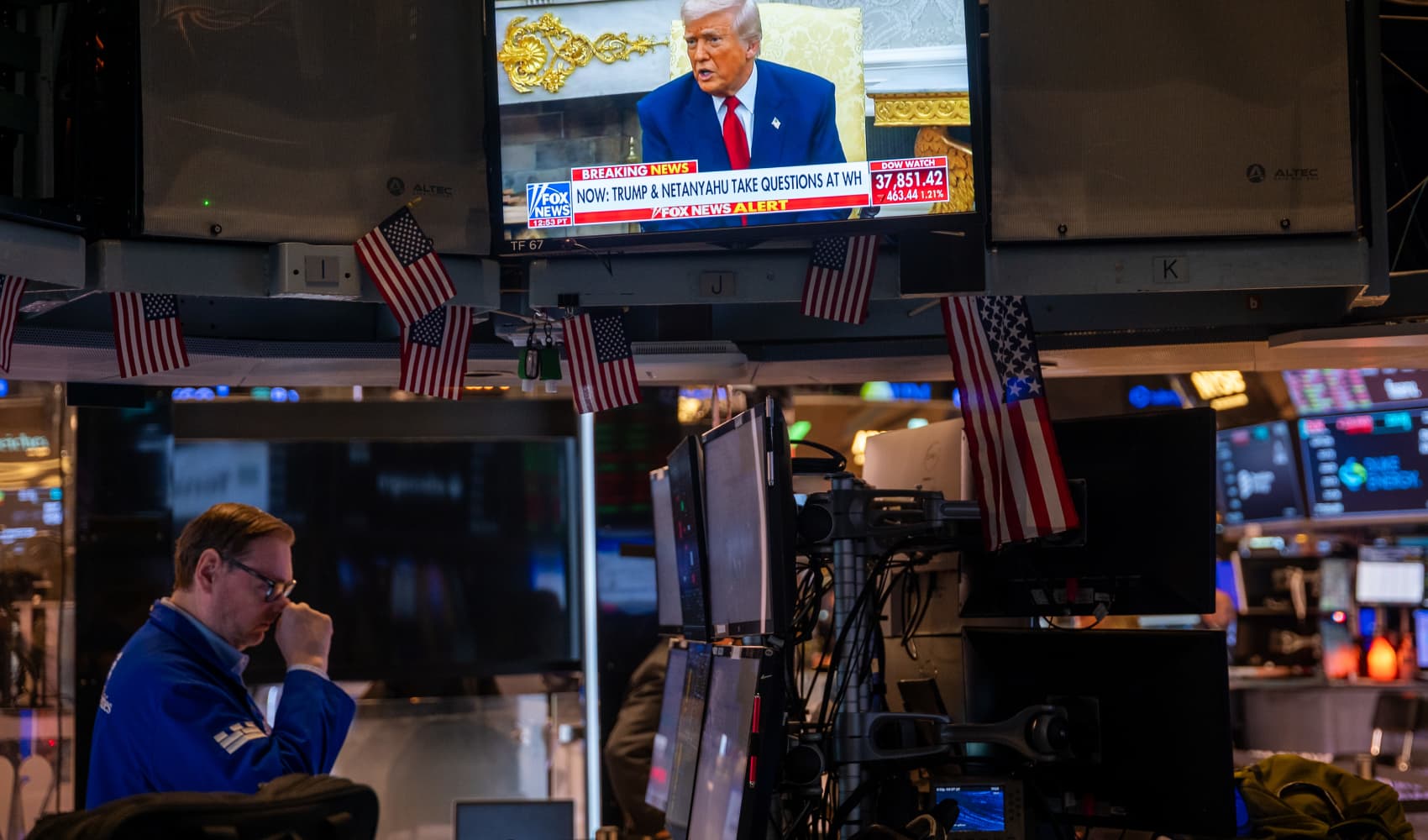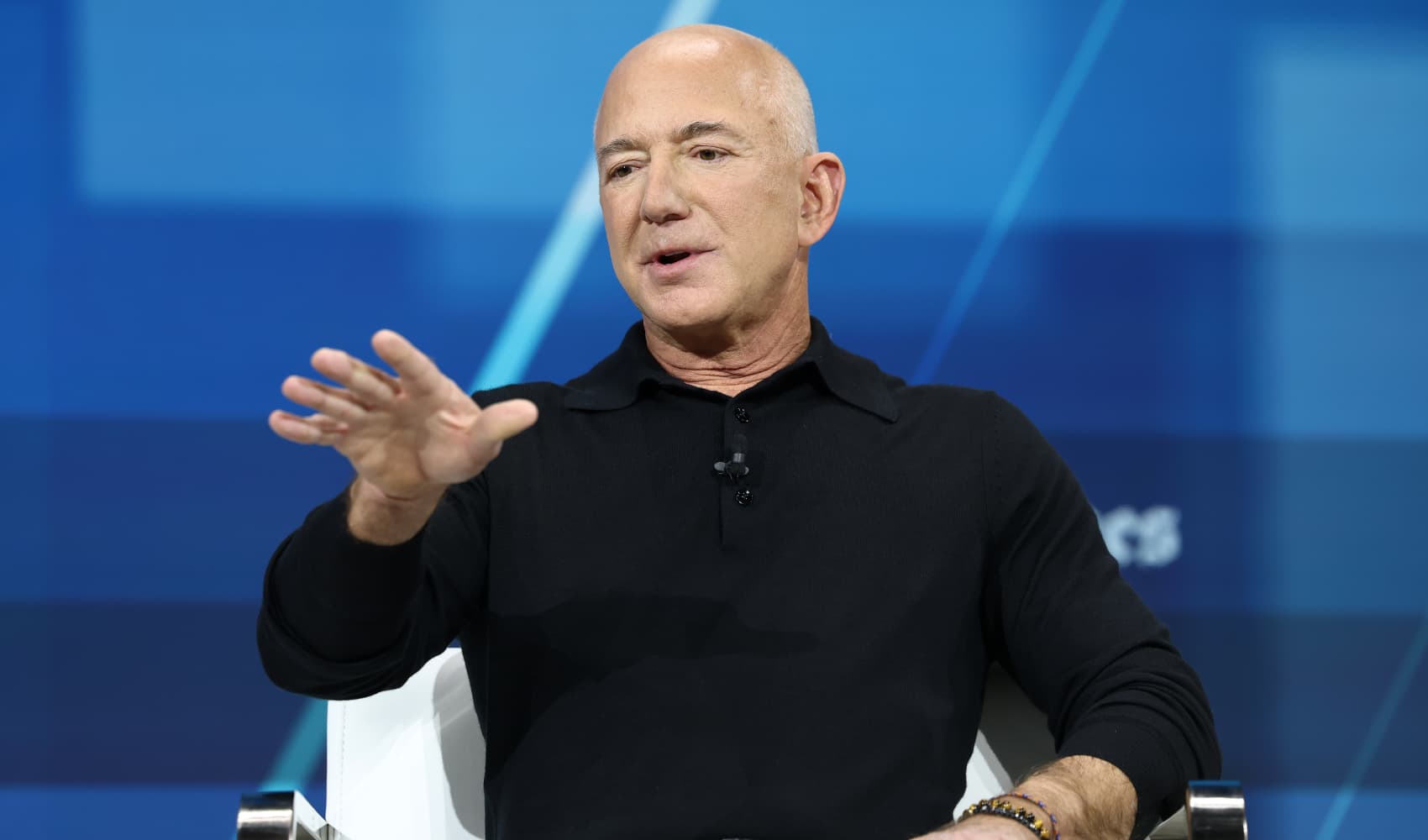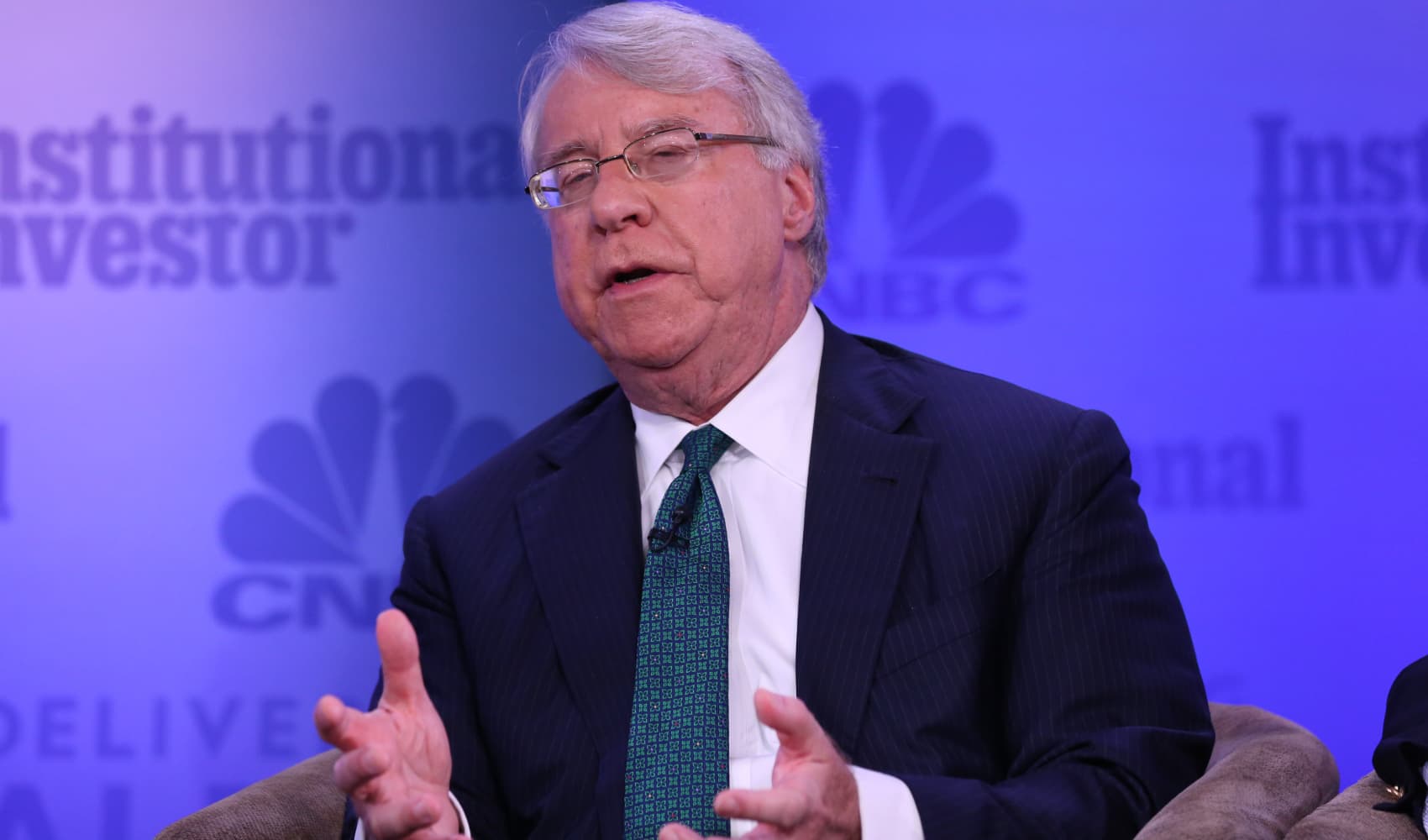Jim Cramer: Politicians Must Remember Shareholders' Power
Jim Cramer's Call to Action: Why Politicians Can't Ignore Shareholders
Introduction: The Overlooked Voice in Washington
Have you ever felt like your voice isn't being heard? Well, according to CNBC's Jim Cramer, many shareholders are feeling the same way. Cramer recently made a powerful statement, urging politicians to remember that "shareholders are a constituency." It's a simple, yet profound message that cuts through the noise and demands recognition. But what exactly does this mean for you, the average investor? Let's dive in and explore why this call to action is so important, and why overlooking shareholders could have serious consequences.
Who Are These "Shareholders" Anyway?
Cramer rightly pushed back against the idea that only the "arrogant rich people" own stocks. This is a dangerous and inaccurate stereotype. In reality, shareholders represent a diverse cross-section of society. Think about it:
- Your Retirement Account: Do you have a 401(k), IRA, or pension plan? Chances are, you're a shareholder, even if you don't actively trade stocks.
- Your College Fund: Many college savings plans invest in the stock market to grow over time.
- Your Mutual Funds: If you invest in mutual funds, you're indirectly owning shares of various companies.
- Everyday Investors: Millions of people invest directly in stocks, hoping to build wealth for their future.
So, when politicians make decisions that impact the stock market, they're not just affecting Wall Street tycoons. They're impacting the financial well-being of ordinary people, like you and me.
Why Should Politicians Care About the Stock Market?
The stock market isn't just a scoreboard for corporate profits; it's a barometer for the overall economy. A healthy stock market can lead to:
Job Creation
When companies perform well, they're more likely to invest in expansion, which often means hiring more employees. This creates a ripple effect, boosting the economy and improving living standards.
Economic Growth
A thriving stock market encourages investment, innovation, and entrepreneurship. This leads to increased productivity and economic growth, benefiting everyone in society.
Retirement Security
For millions of Americans, the stock market is a crucial component of their retirement savings. When the market performs well, their retirement accounts grow, providing them with financial security in their golden years.
The Danger of Short-Sighted Policies
When politicians focus solely on short-term political gains, they can inadvertently harm the stock market and the economy. Policies that discourage investment, stifle innovation, or create uncertainty can have devastating consequences for shareholders. It's like cutting off your nose to spite your face – you might feel good in the moment, but you'll regret it later.
Cramer's Critique: The Mega-Rich Hypocrisy
Cramer pointed out the hypocrisy of the "mega-rich" who "love to come on the air and tell you the stock market is too dangerous." It's important to remember that they often have alternative investments and resources that buffer them from market volatility in ways that are not available to the average investor. Their pronouncements can sow fear and discourage ordinary people from participating in the market, further widening the wealth gap.
The Power of the Individual Investor
Despite the noise and negativity, individual investors have the power to make a difference. By staying informed, making smart investment decisions, and holding politicians accountable, we can ensure that our voices are heard. Think of it like a flock of birds – each individual bird might seem insignificant, but together, they can create a powerful force.
How to Make Your Voice Heard
So, how can you, as a shareholder, make your voice heard? Here are a few practical steps:
Stay Informed
Keep up-to-date on the latest financial news and economic trends. Understand how political decisions can impact your investments.
Contact Your Representatives
Let your elected officials know your concerns about policies that could harm the stock market. Write letters, send emails, or even schedule a meeting.
Vote Wisely
Support candidates who understand the importance of a healthy stock market and a thriving economy.
Join Advocacy Groups
Consider joining organizations that represent the interests of individual investors. These groups can amplify your voice and advocate for policies that benefit shareholders.
The Importance of Long-Term Thinking
Investing is a marathon, not a sprint. It's crucial to adopt a long-term perspective and avoid making emotional decisions based on short-term market fluctuations. Remember, the stock market has historically trended upward over time, despite periodic downturns.
The Role of Financial Education
Financial literacy is essential for making informed investment decisions. Take the time to educate yourself about stocks, bonds, mutual funds, and other investment vehicles. There are countless resources available online, in libraries, and through financial advisors.
Diversification: Don't Put All Your Eggs in One Basket
Diversification is a key strategy for managing risk in the stock market. By spreading your investments across a variety of asset classes, you can reduce your exposure to any single investment and improve your overall returns.
Understanding Market Volatility
The stock market is inherently volatile. There will be ups and downs, periods of growth and periods of decline. It's important to understand that volatility is normal and not to panic sell when the market dips. Instead, view it as an opportunity to buy low and potentially profit when the market recovers.
The Impact of Global Events
The stock market is influenced by global events, such as political instability, economic recessions, and natural disasters. These events can create uncertainty and volatility, but they can also present opportunities for savvy investors.
Regulation: Striking the Right Balance
Regulation plays a crucial role in protecting investors and ensuring fair markets. However, excessive regulation can stifle innovation and hinder economic growth. The key is to strike the right balance between protecting investors and promoting a thriving economy.
The Future of Investing: Technology and Innovation
Technology is transforming the way we invest. Online trading platforms, robo-advisors, and artificial intelligence are making investing more accessible and affordable than ever before. These innovations are empowering individual investors and leveling the playing field.
Shareholders: The Engine of Innovation
Shareholders are not just passive observers; they are the engine of innovation. By investing in companies, they provide the capital needed to develop new products, create new jobs, and drive economic growth. In a way, shareholders are the lifeblood of the economy, providing the fuel for progress.
Conclusion: A Call for Recognition
Jim Cramer's message is clear: politicians cannot afford to ignore the interests of shareholders. These are not just "arrogant rich people," but everyday citizens who rely on the stock market for their retirement, education, and financial security. By understanding the importance of a healthy stock market and enacting policies that promote investment and innovation, politicians can create a brighter future for all. As shareholders, we must stay informed, make our voices heard, and hold our elected officials accountable. The future of our economy depends on it.
Frequently Asked Questions (FAQs)
Here are some frequently asked questions about the stock market and the role of shareholders:
What is a stock?
A stock represents ownership in a company. When you buy a stock, you become a shareholder and have a claim on a portion of the company's assets and earnings.
Why do companies issue stock?
Companies issue stock to raise capital for various purposes, such as expanding their operations, developing new products, or paying off debt. It's essentially like selling a piece of the company to investors in exchange for funding.
What is the difference between a stock and a bond?
A stock represents ownership in a company, while a bond represents a loan to a company or government. Stockholders have a claim on a portion of the company's assets and earnings, while bondholders have a claim on the company's debt. Bonds are generally considered less risky than stocks, but they also offer lower potential returns.
How can I start investing in the stock market?
You can start investing in the stock market by opening a brokerage account with a financial institution. You can then research different stocks and investments and make informed decisions about where to allocate your capital. Remember to start small and gradually increase your investments as you gain experience and knowledge.
What are some common mistakes that investors make?
Some common mistakes that investors make include: investing based on emotions, not diversifying their portfolios, trying to time the market, and not doing their research. It's important to stay disciplined, stick to your investment strategy, and avoid making impulsive decisions.



![Buy Reddit Stock? Cramer's Volatility Warning [2024 Guide] Buy Reddit Stock? Cramer's Volatility Warning [2024 Guide]](https://media.nbcnewyork.com/2025/05/108108209-1740631818542-gettyimages-1636801576-logos.jpeg?quality=85&strip=all)




